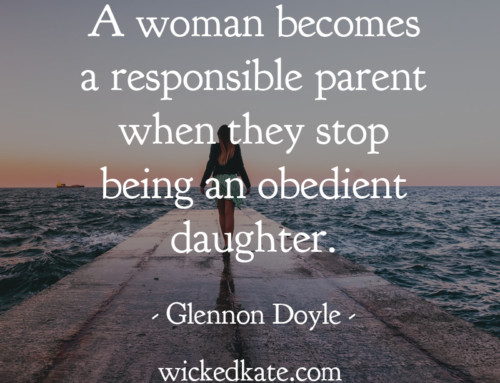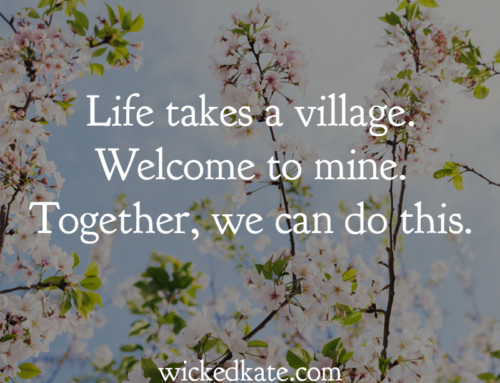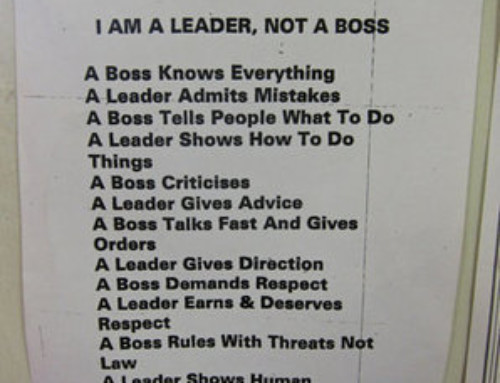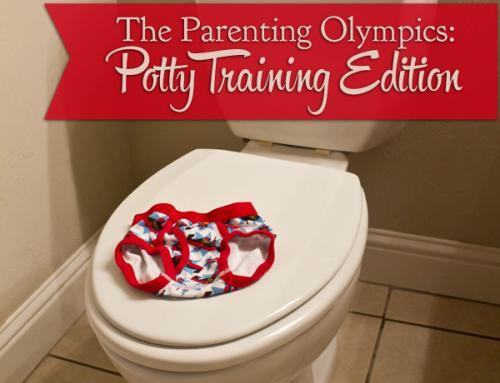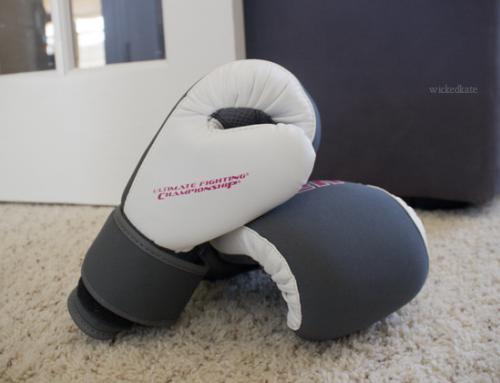There is only one way to beat post partum depression. Fight. Like. Hell. I’m sorry for the language, but it really is the only way that I can think of to describe how hard you have to work to make sure that you beat this scary beast out of your life. You have to give everything you have, and use all resources available to you. I know. I did it, and I continue to do it every day. Here is my story. Read it for yourself, but also for the women in your life. This is a disease that often gets overlooked and goes way too far before it is confronted. You could save a life, or your own.
The Backstory
Growing up, I went through bouts of depression. In high school, and a little in college, then big time just after graduation, I found myself in funks. I would cry way too much. My anxiety would be irrational, and I had an inability to see the positive in the world. I just couldn’t get out of my own way. I’d think the world was against me, and loneliness would set in, even though I was surrounded by some of the most amazing people the world has to offer. Eventually, I would find months of happiness. For those, I am thankful.
Don’t read that wrong. I am not complaining about my teen and twenties. I am a lucky woman with amazing family and friends. I’m simply stating that I had some dark periods. I think we all do. Mine were diagnosed as depression by physicians. I went to months of talk-therapy with doctors in several different states. I enjoy talking, but I did not find resolution in these meetings.
At 26, babyitis kicked in for me. I came off of birth control, and I became pregnant just two months later. I had my baby girl, and everything was wonderful (in my mental state) for 18 months. Then I got pregnant again and miscarried. Nine days later, I got pregnant again, this time with Boy. I was thrilled to be pregnant. I wanted Boy, but the pregnancy was tough. My body was in a hormonal cocktail from the pregnant-not-pregnant-re-pregnant month I had in February 2010. Luckily, my hospital requires mothers who miscarry to go through therapy. I continued my sessions for months into my pregnancy (with a psychologist who was pregnant with twins, actually). I finally came out of my funk after morning sickness lifted, and I was over-the-moon when Boy entered the world. Instant love and connection, even more the second time than the first (when I had Girl) because I knew how awesome the privilege of being this kid’s mom was going to be.
Skip six weeks into the future. Everything is going well. I decide that it was time to get back to intimacy with Hubs and got an Implanon birth control device implanted in my arm. Though I was concerned that birth control may have had something to do with my dark-spots in the past, the OB/GYN promised that Implanon was better because it was a low consistant dose. No more up and down due to pill timing. It sounded great. For me, it was not great.
From the first week, I began to feel more indifferent to my life. I began to feel like I didn’t care about anything anymore, including my gorgeous son and beautiful daughter. Sleep deprived, breastfeeding, nutritionally overtaxed, exhausted emotionally, insomnia-ridden, and home alone with two kids under three. I was happy because I loved my kids and recognized the blessing of being a stay at home parent, but there were thick clouds of funk rolling in. I started to have panic attacks. Lots of them. I started to cry more than usual. I started to lose faith in myself, and my ability to parent. My kids would cry and I would have a hard time finding motivation to help them. By three weeks, I even looked at my SUPER adorable son and felt no heart connection to him. I was horrified. In talking to my mom, I realized that my slide started back when I had the birth control implanted.
Knowing that something was really wrong, I turned to the internet to see what other people had written about Implanon, and found that I was not alone. This was something that lots of women had experienced while on birth controls, but especially this one.
I returned to the doctor and demanded that it be removed and replaced by a Paragard (non-hormone IUD). They looked at me and said, “We will do it, but it’s just Post Partum.” Just post partum. Yeah. Ok. It was a big honkin’ case of it, and was going to get worse before it got better.
When I returned home, things didn’t get better automatically. I turned to the internet again to look up Post Partum (PPD). I found one article about a woman who had suffered from post partum and had to be cared for by friends and family for months because she couldn’t beat it. She was medicated, and still had trouble. Finally, after a long time, her and her daughter were able to successfully bond. I was even more terrified. This article was my motivator. This was not going to be me. With my husband (as so often is the case) out of town, and living on the opposite side of the country from my family, I turned to my friends.
I am NOT a person who asks for help. I just put my head down and work it out. This was not going to be an occasion that I could do it alone, and I knew it. I humbled myself, and called a friend who came to watch my kids while I got some time off. Time off turned into a trip to the ER to try to stop my ongoing panic attacks. Afterward, another friend called and told me that I wasn’t allowed to go home. I was to stay with her and her family until Hubs returned. I stayed for three days on my angel-friend’s guest bed with Girl. She weened Boy for me onto bottles (medications that stopped the panic meant no breastfeeding – which broke my heart – but I wasn’t about to hurt Boy). On the worst night of my life, I had a bad drug reaction and was lying on a bed unable to move from indifference. All I could do was lie there and repeatedly cry saying, “I can’t do this…” It was horrible.
Hubs came home the next day, and we actually took a trip back to our hometowns on the east coast the next day. There, surrounded by family and friends I began to dig my way out. Hubs was incredibly patient and stood by me. He made me repeatedly tell him that “anxiety is a lie you’ve told yourself”. He got me to breathe when I thought I couldn’t, and got me to keep moving.
My mother said it best. “Those kids need you. Your friends and family need you. I need you. You do whatever you have to do to get out of this. You get whoever you need to help you. You fight. You don’t have a choice.” As usual, my mom was right. I did just what she said upon my return to the west coast.
After meeting with several professionals, I realized that post partum depression is not some famous woman’s disorder (ie: Brooke Shields). You do not have to be so out of your mind that you hurt your kids. The disease is real, damaging, scary, and surprisingly common. It is a chemical imbalance in the brain that results in low serotonin levels. This can result in a wide variety of symptoms. For me, the indifference, gloominess, despondence, panic attacks, and physical aches/pains were direct results of this imbalance. Reflection and conversation with medical professionals has resulted in a belief that I am part of the 2% of women that are allergic to synthetic hormones available in most birth controls. They cause my imbalances, as proven in my repeated birth control induced funks throughout my teens and twenties. While I did have post-partum depression, I believe that it was greatly enflamed by the birth control I took afterward.
The Plan
The resolution of my depression was not easy. The process took many steps, but I feel blessed to now know how to combat such a demon. Regardless of your gender or child-rearing intentions, understanding how to overcome the disabling disease of depression (or at least how one person did it) may be helpful. If my post/story can help one person, it is worth writing/sharing.
First, I begrudgingly had to accept the prescription for anti-anxiety and anti-depression medications. I didn’t have faith in their worth. I’d tried them before to no avail. This time it was different. I was no longer pumping the imbalance into my system with birth control at the same time. The pills started working after a short period of serum level development (you have to take them for a couple of weeks to build it up in your system to have it make a difference). I knew that pills were not going to bridge the gap to mental health alone, so I started the hard work. Perhaps someday I will no longer require this medication, but for now (almost a year later) they keep me feeling my best. I do not feel shame in taking them any longer.
I began to surround myself with positive and supportive people.
I got into a clinic that combined medical and talk therapies for clinical depression. These people knew what to do with and for me to help me beat my anxiety. I worked with a behavioral intervention specialist who made all the difference in the world. She taught me how to deal with my thought patterns, how to change them, and how to get myself to view myself in a more realistic manner.
I started to listen. I listened to my body, the advice of professionals, and what I believe is God. I started to look for blessings instead of being bogged down by the negatives. It isn’t an easy process, and wouldn’t have been possible without my serious emotional muscle flexing. Depression steals away the happiness from your life. You have to fight to get it back by refusing to believe your clouded reality and replace it with what you know to be true. You have to build faith. Even if this faith isn’t in a loving and all-knowing God (as it is for me), you must regain the faith in a better future. This isn’t as easy as just saying “yep, I believe”. It takes hard work, but it is possible.
For my body aches which were a direct result from my chemical imbalance, I sought the support of a chiropractor. I never believed in these guys before (read guys as gender neutral). I thought they just cracked your back. Woo-hoo, right? No. Turns out, chiropractors (the good ones) are nerve specialists that empower your body to work at its best by aligning your main communication centers (spine and brain). When I got to Dr. Sweet’s office, I was a cramped mess and couldn’t stand straight and proud. There was no way I could physically do it. In an effort to protect itself from the attack of the pregnancy (which changes EVERY woman’s body – regardless of what JLo and Mariah Carey have to say, you can’t get your old body back) and the depression, I was literally physically tied in knots. With his help, I began to repair the damage. After a few months, I was two inches taller (that’s how compacted I’d become from stress on my body), and I was able to think more clearly because my body was no longer fighting both a physical and mental war. Even my sleep and life-long sinus issues improved. It wasn’t cheap, but I consider it one of the best investments that I’ve made in quite a while.
Research shows that there is one near-sure-fire method to combatting depression. It has been scientifically proven time and again to do the job. Exercise. Knowing that I was never a jock, and had never lifted in my life, I sought the advice of a friend who I knew was a gym-frequenter. She suggested I sign up with her trainer, and get some directed care. I could learn what I’m doing, and be accountable to someone (Chris – the trainer), so that I couldn’t just give up. I followed the advice, and I’m proud to say that this has helped me to burn off all but 10 lbs of the 80 I gained with Boy. I am convinced that the weight is actually gone, but for the first time in a long time, I am building muscle that kills my weight-loss statistics, but makes me look and feel better. I may not always like it while I am on the treadmill or pushing weights, but the entire rest of my day is better when I go. I feel the difference. I understand why exercise is addictive. Endorphins heal the mind, and when you look better you feel better. Two. For. One. The work is worth it. Lace up.
Finally, and most importantly, I looked into my heart and promised myself that I would NEVER EVER go back. I would do whatever it took to ensure that I would never go back to the dark place that I landed when I was at the depth of my depression. I used that bottom as a foundation to build myself up. Without the 100% dedication in my soul that I would fight, I don’t think it would have been possible.
The Recovery
Like anyone, I still have bad days. It took me about two months to feel close to normal, and about four before I was really on top of my game. I have tried to titrate off of the medications, but decided that it was a better decision FOR ME to stay on them. I want to be the best version of myself for my family and friends. I actually am thankful for my bout with PPD. It was horrible, but surviving it taught me lessons that I’m not sure could have come from anywhere else. My marriage is the best has been in a long time because I accepted his help and support, and we started to better communicate. My dedication to my kids is stronger because they were my inspiration and reason for fighting in the first place. My relationships with family and friends who matter have grown from my honesty and acceptance of support. I am more balanced and stable than I have been in a long time now, because I refuse to accept anything else. My body is stronger, and my confidence is up, from my gym experience. I know now what support is necessary, where to find it, and when to be humble enough to accept it. I have returned to faith, which I found when I couldn’t see the good in the world but knew it was there. It was a gift that I will forever be grateful to God for receiving. My bond with my son and daughter is strong now. I can’t even imagine the horrifying reality of PPD induced indifference to them, but I can remember the heartbreak it caused. They are always with me, and I can’t imagine my world without them. I love them more than words. It is possible. I know. I did it. Depression may try to sneak back into my life someday, but now I know that I can fight and win.
My Hope
This post is much longer than I’d intended, but I can’t find what to take away. I hope that somehow my revealing my soul to the inter-webs can be a consolation, motivator, or educator to someone out there. If it does, then it was worth it. No one should feel alone in the battle with depression. I know that another woman’s post motivated me to get out of my situation. I hope someday, I may pass it forward.
Disclaimer: I am not a medical professional. The advice contained in this post comes only from my own personal experience. Consult a physician prior to taking any action based upon my suggestions.
